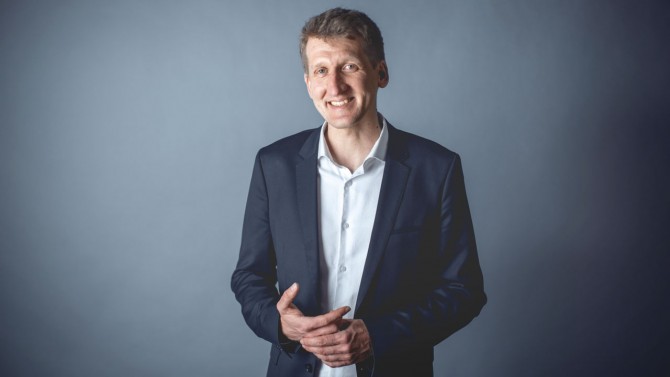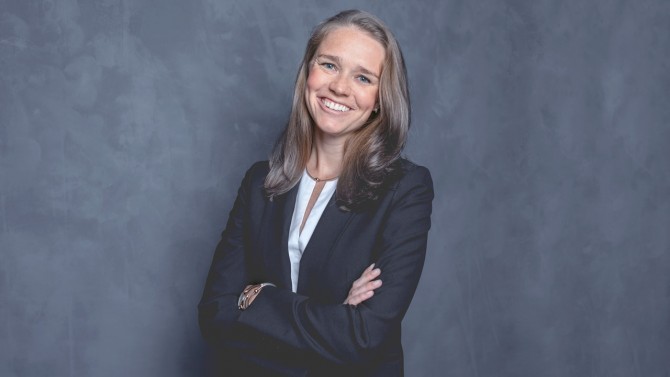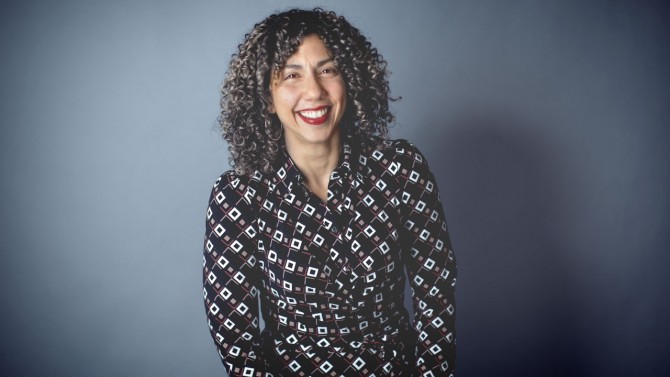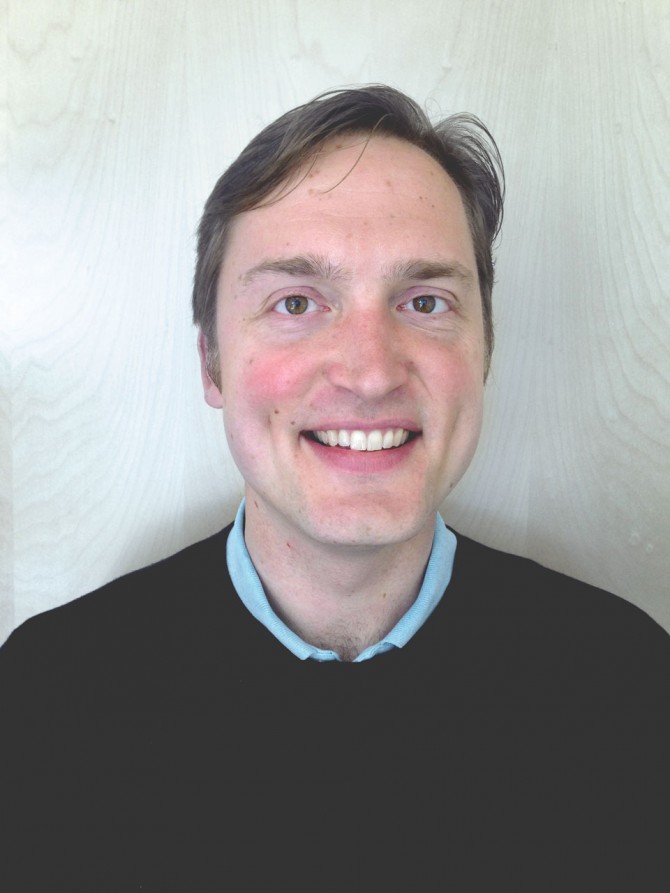Faculty profiles: From circular construction to academic law ambition
This Ezra series profiles recently hired faculty members across Cornell’s colleges, schools and units. In their own ways, these researchers, scholars and teachers embody the university’s creative and collaborative vitality.
Felix Heisel: designing buildings for future centuries
In a sustainable economy, circular construction is straightforward.
“While creating a building design, one might think, ‘This is my masterpiece. It’s going to be here until the end of time,’” said Felix Heisel, assistant professor of architecture in the College of Architecture, Art and Planning. “The reality is that in today’s world, buildings are not forever. The service time for buildings around the world has been decreasing, and we are not building for eternity.”
Heisel is a leader among architecture’s environmental vanguard, where design itself imagines, considers and incorporates a building’s start and end of life – and then accounts for reusing the construction material decades later as an “urban mine” or “material depot.” That approach creates a kind of built-environment savings account for the future.
“It’s not yet a ubiquitous design philosophy, but we could soon be designing buildings with a second or third use in mind,” said Heisel, who began teaching at Cornell only weeks before the campus COVID-19 pause began in spring 2020.
Heisel challenges students to imagine a world where construction materials never wind up in landfills.
Construction and demolition generate about 600 million tons of waste per year, he said, which is more than twice the amount of municipal solid waste. Building-related carbon emissions globally peaked at 9.5 gigatons of carbon dioxide emissions in 2013 and have since then decreased – but that drop was attributed to reducing carbon power generation, according to the United Nations Environment Program. Carbon dioxide emissions from building construction remain on the rise.
Heisel, a Cornell Atkinson Center for Sustainability fellow, maintains ties to his environmental architectural firm 2hs Architects and Engineers, in Karlsruhe, Germany, where he is a partner and co-founder, but he also is establishing roots in Ithaca. His Circular Construction Lab at Cornell aims to be an interdisciplinary platform to rethink the industry. Its most recent project, funded by Cornell’s Office of Engagement Initiatives, is called Circular Ithaca: Researching Construction in the Local Economy, or CI:RCLE. The project ties local resources together in a community-wide living laboratory.
Heisel is teaming with Mark Milstein, clinical professor in the Cornell SC Johnson College of Business and director of Cornell’s Center for Sustainable Global Enterprise, to test new, sustainable circular construction concepts in Ithaca with their students and community partners, including Cornell Cooperative Extension of Tompkins County, Finger Lakes ReUse, Ithaca Neighborhood Housing Services, Trade Design Build and Taitem Engineering, PC.
“In a sustainable and tangible way,” Heisel said, “we’re trying to close the loop.”
– Blaine Friedlander
Madeline Kneeland: exploring work life and collaboration
The coronavirus pandemic altered nearly all aspects of work life, especially employees’ ability to interact face to face, build connections and network effectively.
Exploring the ramifications of those changes fits right into the research interests of Madeline Kneeland, assistant professor of strategy in the School of Hotel Administration in the Cornell SC Johnson College of Business. Kneeland has spent the past several years studying organizational theory, social networks and network dynamics.
Among COVID-19’s major disruptions are in-person meetings, including participation in corporate retreats. While retreats can be costly endeavors involving monthslong logistics and planning, the far-reaching benefits of achieving better team-building and collaboration has long-term value, making it worth the extra effort, Kneeland said.
In a new working paper, “On Agency and its Limits: The Asymmetric Effects of Offsites on Tie Formation,” Kneeland and her co-author, Adam Kleinbaum of Dartmouth’s Tuck School of Business, tackle a first-of-its-kind empirical study of how a retreat can improve and expand intraorganizational networks on several levels. To examine the effect of retreats on employees, they studied the activity of 749 law partners within a large, U.S.-based corporate firm over an eight-year period.
The study reveals some interesting asymmetries about how networks evolve, Kneeland said. While workers can only shape their own networks to a certain extent, others in the network also play an active role in shaping connections. They find that it’s important to show up in person for opportunities that create visibility to others in an organization.
Kneeland said these results were somewhat surprising.
“After a retreat, everyone in the organization is more likely to initiate new collaborative ties with people they have not worked with recently – even if they didn’t attend the offsite meeting,” she said. “We discovered there was a firm-wide boost in people seeking out new collaborators, [and] it was those who did attend the offsite [who] were more likely to be sought after as a collaborator.”
While no one can predict what the post-pandemic world will look like, it will likely involve a greater degree of remote work – which will only heighten the discussion around offsite retreats and the value of creating opportunities for collaboration.
Kneeland is also studying the challenges women face in maintaining organizational networks while working remotely.
“Women have been dropping out of the labor force at alarming rates since the pandemic began, and it is imperative to understand ways to retain female talent as organizations,” Kneeland said. “Organizations need to be mindful of those who occupy more tenuous positions in the organizational networks to keep them connected to others and engaged with their work.”
Kneeland came to Cornell from New York University’s Stern School of Business, where she completed her Ph.D. in management and organizations. In her first year at Cornell, she has enjoyed collaborating informally with a diverse group of scholars within the Cornell SC Johnson College’s three schools – the School of Hotel Administration, Johnson and Dyson – as well as at the ILR School.
“We present in-progress work to each other and help troubleshoot methodological and theoretical issues that arise in the research process,” she said. “The amount of organizational research happening in many different corners of the university is an incredible advantage, and one of the draws of serving as a faculty member at Cornell.”
– Sarah Magnus Sharpe
Michelle Moyal: human-animal bond fuels veterinary passion
Michelle Moyal, D.V.M. ’07, brings a rich perspective to her field of veterinary medicine.
Brought up in the culturally diverse borough of Queens, New York, by parents who immigrated from Casablanca, Morocco, in the 1960s, Moyal attended CUNY Queens College on a basketball scholarship.
“My mother learned English watching children’s TV shows and went on to earn her GED taking night classes. She is a huge source of inspiration and a testament to hard work,” said Moyal, who now brings those principles to her work as section chief for the Primary Care Surgery (PCS) service at the Cornell University Hospital for Animals (CUHA).
Moyal’s passion for the human-animal bond brought her to the veterinary profession. “There is no other relationship like it,” Moyal said. “And I get to be a voice and an advocate for a being that can’t speak for itself.”
Upon completing her veterinary degree at the Cornell College of Veterinary Medicine (CVM), Moyal interned at a specialty hospital in San Diego, where she stayed on as an emergency doctor. She later worked in general practice in the New York City metro area.
“When an opportunity at Cornell presented itself at the end of 2019, all I could think was I’d have the chance to keep doing what I love at an institution I was so proud to have graduated from,” she said.
As section chief of PCS, Moyal can put her expertise to work. “After 13 years of practice in both emergency medicine and primary care, I wanted to use my experience to help create great doctors,” she said.
Making great doctors is at the heart of what the PCS service does – performing basic care and surgery out of Cornell’s Small Animal Community Practice, where students are given autonomy and primary care responsibility while still under reliable supervision. “I am so excited to give them hands-on experience from a private practice perspective,” Moyal said,” and watch them make the knowledge and skills their own.”
Moyal is passionate about advancing diversity and inclusion in her field. She recalls her time as a student, walking down the long hallway of the college where the photos of every past veterinary class are displayed and noting pioneers like Florence Kimball, D.V.M. 1910, the first woman graduate, and Kirksey Curd, D.V.M. 1912, the first Black graduate.
“I’m still inspired by their accomplishments,” Moyal said, “and so proud to be a Cornell graduate alongside them.”
She currently serves as the first faculty adviser for the Cornell chapter of the Black D.V.M. Network; works on CVM’s Diversity, Equity and Inclusion Affairs Committee; and was named to the advisory group for the American Veterinary Medical Association’s Commission for a Diverse, Equitable and Inclusive Veterinary Profession.
“I’m so proud of how far we’ve come, but recognize we still have a long way to go regarding representation in veterinary medicine,” Moyal said. “This motivates me every single day.”
As she coaches budding young veterinarians and strives for a diverse profession, her love for veterinary medicine fuels everything she does.
“Veterinary medicine impacts so many aspects of our daily life, public health, medical research and beyond,” she said. “I am in awe of the work that veterinary professionals do across all disciplines. My goals are to learn something new as often as possible, share the things I’ve learned with the veterinarians of the future and, overall, to leave the world a better place than I found it.”
– Lauren Cahoon Roberts
Brian Richardson: Blending legal theory and practice
In the summer of 2017, Brian Richardson found himself in the trenches of the nation’s highest-stakes legal drama, supporting special counsel Robert Mueller’s investigation of Russian interference in the 2016 presidential election. The intense, around-the-clock work of the Mueller team was the latest prestigious but unexpected turn in a career that began with an academic ambition: to be a law professor.
Richardson achieved that goal in January 2020 when he joined Cornell Law School as an assistant professor of law and the Jia Jonathan Zhu and Ruyin Ruby Ye Sesquicentennial Faculty Fellow. But after having worked as an assistant special counsel and in a trio of federal court clerkships – culminating at the U.S. Supreme Court – he arrived a different professor than the one he’d imagined being.
“These experiences really changed me as a teacher and scholar,” he said. “I became convinced of the importance of combining academic study and engagement with the practice of law. Both, I think, are important to my students.”
Richardson teaches first-year constitutional law, public international law and conflicts of law. He also hopes to teach federal criminal law. His published works concerning constitutional law, international arbitration and foreign-affairs law have appeared in the American Journal of International Law, the University of Pennsylvania Law Review, and in edited collections of international arbitration scholarship.
After graduating from the University of Redlands in 2004, Richardson studied overseas at the University of Cambridge, where he focused on international relations and earned a master’s in philosophy in 2005. He subsequently earned a J.D. from Yale Law School in 2011 and a Ph.D. from Cambridge in 2012, where his doctoral work concerned public international law.
Pausing his academic career to pursue public service, Richardson in 2012-13 clerked for Judge Jed Rakoff of the U.S. District Court for the Southern District of New York. That was followed by clerkships for Chief Judge Robert Katzmann of the U.S. Court of Appeals for the 2nd Circuit, and then in 2016-17, for Supreme Court Justice Stephen Breyer.
Each of his experiences in the practice of law was deeply inspiring, Richardson said. “Each of these institutions attracted a cast of devoted and brilliant public servants, all of whom were dedicated to the careful, deliberative and effective pursuit of justice.” They reinforced the ideal, echoed in the Law School’s motto of “lawyers in the best sense,” of aspiring to be both excellent and humane. These arenas also opened Richardson’s eyes to gaps in the law that he hadn’t known existed – areas he plans to explore in his classes and future scholarship. “Practice exposes places where the law runs out,” he said, “or where there are serious conflicts or unresolved tensions.”
Beyond the classroom, the Tucson native enjoys spending time outdoors with his family, making Ithaca’s easy access to trails, streams and lakes a natural fit. He considers Cornell Law an ideal place to teach and study, after a few unplanned detours from legal archives into legal practice.
“It’s been a warm and welcoming environment,” he said, “that values not only my academic background but also a practical outlook on the law.”
– James Dean
This story originally appeared in the spring 2021 issue of Ezra magazine.
Media Contact
Get Cornell news delivered right to your inbox.
Subscribe





